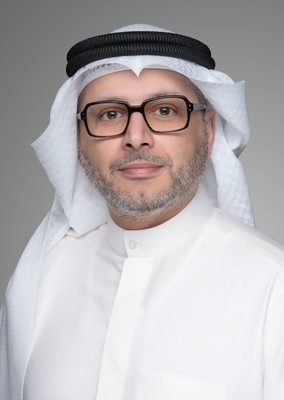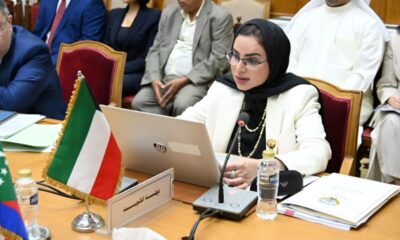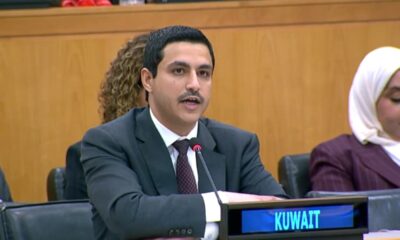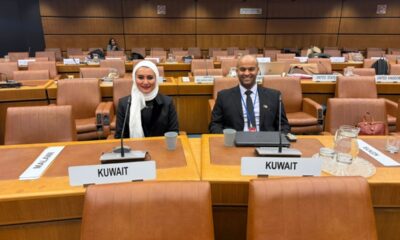KUWAIT CITY, July 14: Chief Executive Officer (CEO) of Boursa Kuwait Mohammad Al-Osaimi said the timeline for debt instrument trading is proceeding as planned, indicating that sukuk and bonds will be traded in 2025. He affirmed that all technical tests for index funds and the bond and sukuk market have been completed, and the regulatory rules are currently being prepared and will be announced within the next few months.
Al-Osaimi announced on the sidelines of the launch of the second part of the third phase of the Capital Market Development Program, which is a major milestone that reflects the market system’s commitment to continue development per international best practices. Regarding the expected volume of debt instrument trading on the stock exchange, Al-Osaimi explained, “The current value of commercial debt instruments does not exceed KD2 billion, but after the approval of the Debt Law, we aspire to list government bonds and sukuk”. He pointed out that the stock exchange has a development program extending over three or four years to introduce major updates to its trading system. He revealed “we will begin testing the new trading system in the second half of 2026.” He stated that the stock exchange is cooperating with the Capital Markets Authority (CMA) to review several products to better present them, stressing that the introduction of the CCP and the Central Broker will help the stock exchange offer financial derivatives soon. He explained that these developments will lead to attracting foreign investments, coinciding with increased investor confidence.
About amending the listing requirements on the main market, Al-Osaimi confirmed that “when the reduction of listing requirements on the main market was approved by reducing the company’s capital limit from KD15 million to KD5 million, we received numerous communications from subscription managers in this regard.” He anticipates listings shortly. He disclosed that two family companies are currently negotiating with the stock exchange for listing, explaining that the stock exchange intends to attract companies in various sectors, including commercial, government, and family businesses. He said the listing procedures and requirements are not easy, as companies are being reorganized and prepared for this step, which may require a period that may extend to several years. He clarified that there is currently no intention to list oil sector companies, disclosing that there have been discussions with the Public-Private Partnership Authority to list a government company such as North Al-Zour next year. He added, “The launching of the second part of the third phase of the Capital Market Development Program — the main station — reflects the market system’s commitment to continue development following international best practices.”
He emphasized that “this achievement is a qualitative shift in the development process of the market and it is the result of the concerted efforts of CMA, Central Bank of Kuwait, Kuwait Clearing Company, Boursa Kuwait, and our partners from banks, investment companies and financial brokerage companies.” He confirmed that this phase witnessed a comprehensive development of the operational and technical infrastructure, including strengthening the clearing and settlement system, upgrading and modernizing trading systems, and improving the market structure through the implementation of the ‘Qualified Broker’ model and the application of more accurate and transparent mechanisms for account management. He explained that this achievement affirms the readiness of the market for more advanced stages in the future, and a shared vision for an efficient and flexible financial market capable of supporting economic development and attracting investments. He confirmed Boursa Kuwait’s commitment to continue this journey, in partnership with all stakeholders, to ensure sustainable development and enhance the position of Kuwait as an advanced regional financial center.
On the other hand, Director of the Trading Department at CMA Khaled Al-Sahli stated that the second part of the third phase of the Capital Market System Development Program includes the provision of financial products. “Trading and post-trading have been activated through the applicable systems, in addition to preparing the structure of the articles, executive regulations and the stock exchange rules,” he disclosed. Al-Sahli indicated that work is underway to approve the executive regulations after the completion of the rules and regulations for settlement and litigation in the Central Depository, which will happen soon. He asserted, “This development step contributes to boosting confidence among foreign investors and increasing foreign inflows, especially with the implementation of the CPP.”
He asserted that such steps taken by the Kuwaiti market open new horizons for brokerage firms. Abdul Karim Al-Yaqout – Director of Strategy and Product Development at Kuwait Clearing Company – pointed out that the third phase is the cornerstone in the process of developing the infrastructure for post-trade operations, led by CMA and implemented by Kuwait Clearing Company, in cooperation with Boursa Kuwait and the Central Bank of Kuwait. Al-Yaqout added that Kuwait Clearing Company plays a vital role in the areas of clearing, settlement, depository, collateral management and risk mitigation; thereby, contributing to the alignment of the Kuwaiti capital market with international standards, such as IOACO and PFMI. He affirmed that there is a reconciliation period extending six months from the start of the phase, in addition to another phase for transferring client funds to brokerage firms after obtaining their approval. He said a date has been set for this phase and July 17 is the deadline for this step
By Najeh Bilal
Al-Seyassah/Arab Times Staff

 Latest News23 hours ago
Latest News23 hours ago
 Politics16 hours ago
Politics16 hours ago
 Latest News17 hours ago
Latest News17 hours ago
 Latest News15 hours ago
Latest News15 hours ago
 Politics7 hours ago
Politics7 hours ago
 Latest News7 hours ago
Latest News7 hours ago
 Politics6 hours ago
Politics6 hours ago
 Business7 hours ago
Business7 hours ago
















